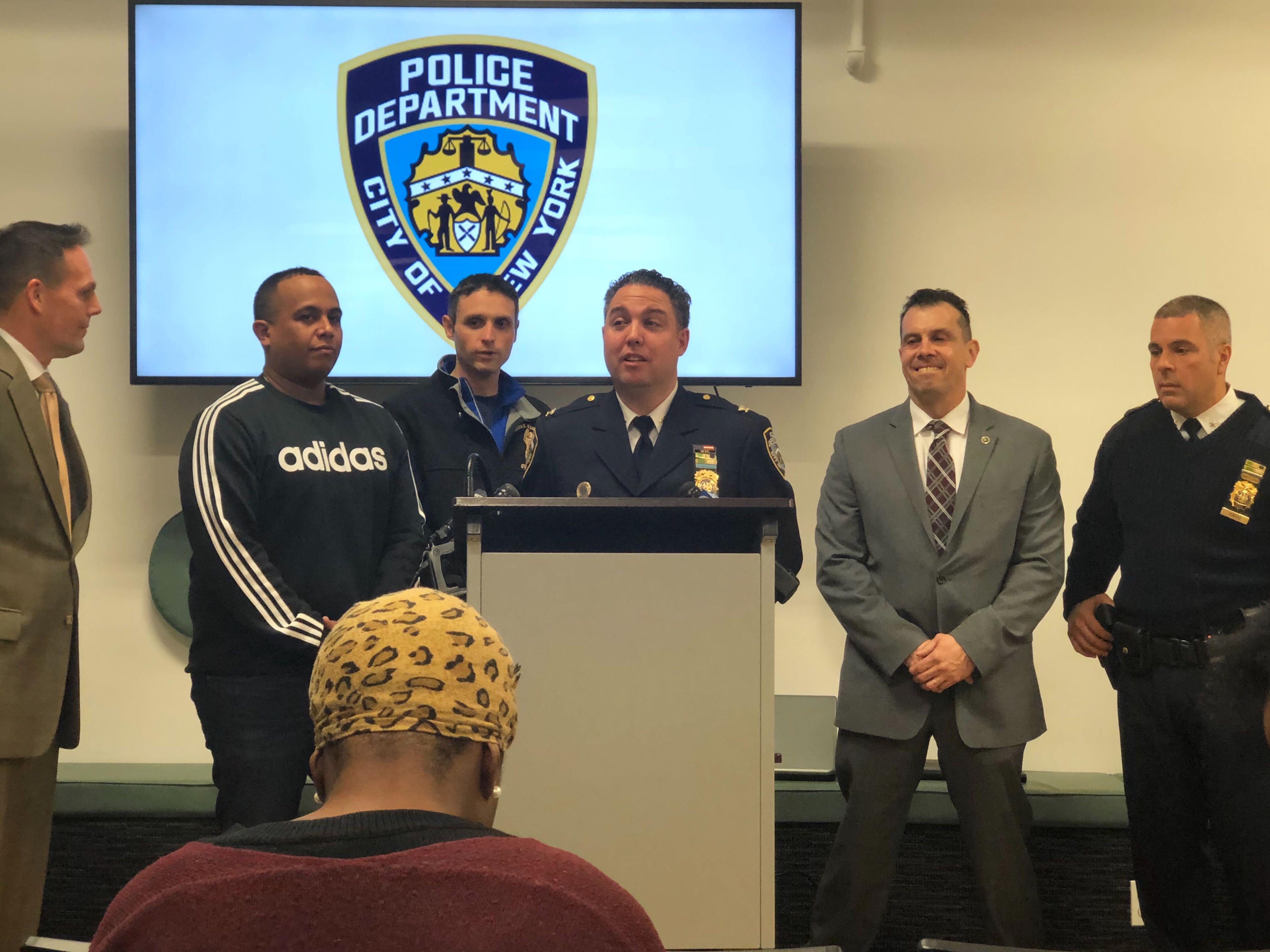
Detectives from the 40th Precinct arrested 10 alleged drug dealers last week, capping a year-long investigation. Deputy Inspector Brian Hennessy, the precinct’s commanding officer, made the sting and subsequent busts public at a community briefing Friday evening.
The takedown took place at Perry’s Diner on Third Avenue on Jan. 8. Detectives charged 10 people loosely associated with the Latin King Pin gang with conspiracy charges. Hennessy said that police were able to connect the overdoses of five people — two of them fatal — to the crew’s sale of fentanyl, a synthetic drug much more potentially lethal than heroin. Police hope to charge the men arrested with “death by sale” as well as conspiracy, which could result in up to 20 years in prison.
Eight of the 10 suspects are currently behind bars. The other two were released on bail pending their court dates.
The owners and employees of Perry’s Diner are not believed to be involved, Hennessy said, but the IRS is looking into the restaurant.
The NYPD had intended to inform the area residents about the bust, and expressed surprised that media showed up to the community briefing at the office of the Third Avenue Business Improvement District (BID) near The Hub. The BID had circulated a press release informing the public of the meeting.
The announcement comes in the wake of criticism by business owners and residents who have urged NYPD to do more to clean up the congested area, where observers say they have noticed a significant increase in open air drug sales and use.
Inspector Lorenzo Johnson, head of the NYPD’s Bronx Narcotics division, and commanding officer of the 40th Precinct between 2014 and 2015, said that last year there were 95 overdoses in the area patrolled by the precinct, 25 of which were fatal.
“As anyone who lives in this area knows, it’s a major concern about the walking dead, the heroin addicts,” Johnson said.
Francine Rogers, a Melrose resident who is part of a citizens group formed in October called Take Back the Hub that hopes to find solutions for the area’s opioid epidemic, took offense with Johnson’s characterization of addicts.
“The walking dead? That’s disgusting to call them that,” said Rogers. “What is this? Is this a TV show? We want them to be alive.”
Rogers said she’s seen conditions on local streets improve in recent months, but suspects that the cold weather that has drawn people inside rather than the product of policing.
Johnson said the arrests were just the beginning of a long-term effort to clean up the Hub, part of Mayor Bill de Blasio’s promise in November to spend $8 million cleaning up the Bronx opioid epidemic.
Another member of the group, Rogers’ husband Marty, said he wanted to see the police move faster in their cleanup efforts.
“I”m sorry; it took you 12 months to arrest 10 men, and two of them are still out on the street?” said Rogers, who has lived on 150th Street for nearly 40 years. “We could go out right now and find 10 guys selling drugs. What we heard about tonight was a bandaid.”
Hennessy said that the year-long take down is just one of a number of investigations that are underway.
“Because of the severity, we wanted to make sure we had a strong case, so we can get the right people responsible for these overdoses; put them away for as long as possible,” he said, adding that the 40th precinct will ramp up police presence in The Hub and Patterson Playground.
Recently, some community members have criticized the local command for over-policing. On Jan. 11, just three days after the drug arrests, the co-owner of La Morada Mexican Restaurant on Willis Avenue was arrested during an undercover police raid, without being informed why she was arrested.
“The NYPD is known to racially target people of color,” said Yajaira Saavedra at a press conference on Jan. 14 to denounce the arrest. “And I feel like mass policing is a side effect of the gentrification that’s going on in the South Bronx.”
Hennessy said the precinct was looking into Saavedra’s complaint, but added that police presence is ultimately about keeping community safe.
“We’re not here to antagonize anyone,” said Hennessy. “We’re here so a 7 year old can safely cross the street without being harassed by drug dealers. This is about the children of this community.”

